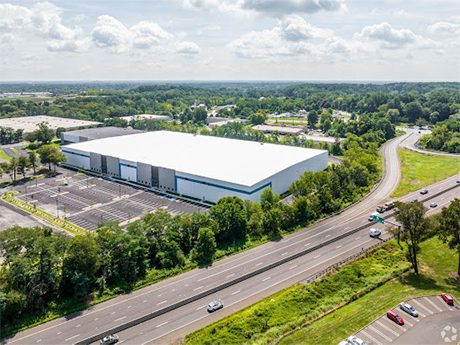By David Weissman, managing director, Greek Real Estate Partners
The industrial logistics landscape is undergoing a dramatic transformation as property owners and tenants invest in artificial intelligence (AI) tools to make each square foot more innovative, more resilient and more responsive.
In doing so, these landlords and users are setting a new industry standard for efficiency and adaptability. Over the past few years, the industry has transitioned from pilots and proofs-of-concept to measurable returns, particularly in property management and facility operations.

Companies that are using AI to redesign logistics flows have seen an approximately 15 percent boost in operational efficiency and a nearly 10 percent reduction in total logistics costs, benefits that compound significantly across large-scale portfolios. That’s according to 2025 data from AI In The Chain, a platform that tracks progress and ramifications of the technology’s integration in to supply chain operations. At the same time, data from Worldmetrics shows that warehouse operators who are implementing AI solutions have seen reductions in order-picking errors of up to 50 percent. In addition, AI solutions have reduced inventory processing time by approximately 40 percent, per Worldmetrics.
Not surprisingly, tenants are seeking smarter buildings. CBRE’s U.S. Real Estate Market Outlook 2025 reveals that many industrial users are focusing on spaces designed to accommodate robotics, high-capacity power requirements and AI-enabled warehouse management. A recent case study of a U.S. logistics company revealed that using AI-powered predictive maintenance cut unplanned downtime by 73 percent, resulting in substantial cost savings, according to a case study by Oxmaint, a computerized maintenance and inventory management platform.
In fact, at Greek Real Estate Partners (GREP), we’ve embedded AI throughout the property management process, using the technology to analyze patterns across maintenance requests, vendor performances and leasing data. This allows us to spot opportunities for improvement before issues arise.
Every work order, inspection and invoice feeds back into the system, training it to make faster, more informed recommendations. As a result, our teams spend less time on routine, administrative oversight and more time making strategic, data-driven decisions that improve building performance and tenant satisfaction.
We see AI as essential to maximizing returns, strengthening tenant relationships and protecting long-term value. We adopted Fyxt, an AI platform that moves property management from reactive to proactive. Invoice approvals, work orders and inspections are now automated, and communication among tenants, contractors and owners is centralized, allowing for quicker resolution of issues and freeing managers to focus on higher-value work.
AI agents take it to the next level by extracting and standardizing data from leases, work orders and inspection reports, allowing an entire portfolio of information to be queried in seconds. For example, AI technology can track notice periods tied to lease expirations, locate every building within a given area with a clear height over 36 feet and monitor roof-warranty dates and terms. The technology can also track occupancy and maintenance issues in real-time, enabling earlier diagnostics and targeted repairs that cut costs.
Fyxt also integrates with Enterprise Resource Planning (ERP) systems like Yardi and MRI to create a single audit trail for budgeting, capital planning and compliance. Automated insurance tracking keeps vendor and tenant coverage current, while AI streamlines vendor bidding, flags recurring issues and provides live dashboards with real-time visibility into portfolio performance.
With tools for lease abstraction, COI collection, vendor coordination and analytics, AI standardizes processes across our management portfolio, reduces errors and increases capacity — all without adding headcount. The result is a scalable framework that supports growth and consistent service, enabling early-action solutions to problems and keeping providers of real estate services well-positioned to meet the demands of clients and tenants.
For GREP, the value of AI lies not just in automation but also in foresight. By learning from past actions, the platform can recommend optimal timing for capital projects, align maintenance scheduling with occupancy patterns and identify operational efficiencies that can yield measurable ROI. This has turned what was once a manual, reactive function into a predictive management ecosystem — one that helps GREP maintain best-in-class assets while deepening its relationships with tenants and investors alike.
AI is quickly becoming the backbone of efficient, scalable property management. Pairing intelligent technology with a hands-on management philosophy ensures that assets are operated efficiently, tenants are satisfied and investors are confident in lasting value.
As AI continues to mature, the next wave of innovation will emerge from systems that interconnect entire portfolios, optimizing the movement of energy, labor and materials across regions. Landlords who view AI not simply as a tool, but as an operational philosophy, will be best positioned to lead. At GREP, our early adoption of AI platforms, such as Fyxt, illustrates vision — combining intelligence, sustainability and service to redefine what modern logistics real estate can deliver.
Companies that are slow to adopt will see competitors move faster and capture both tenants and clients, leaving laggards struggling to catch up in an increasingly AI-driven marketplace.


